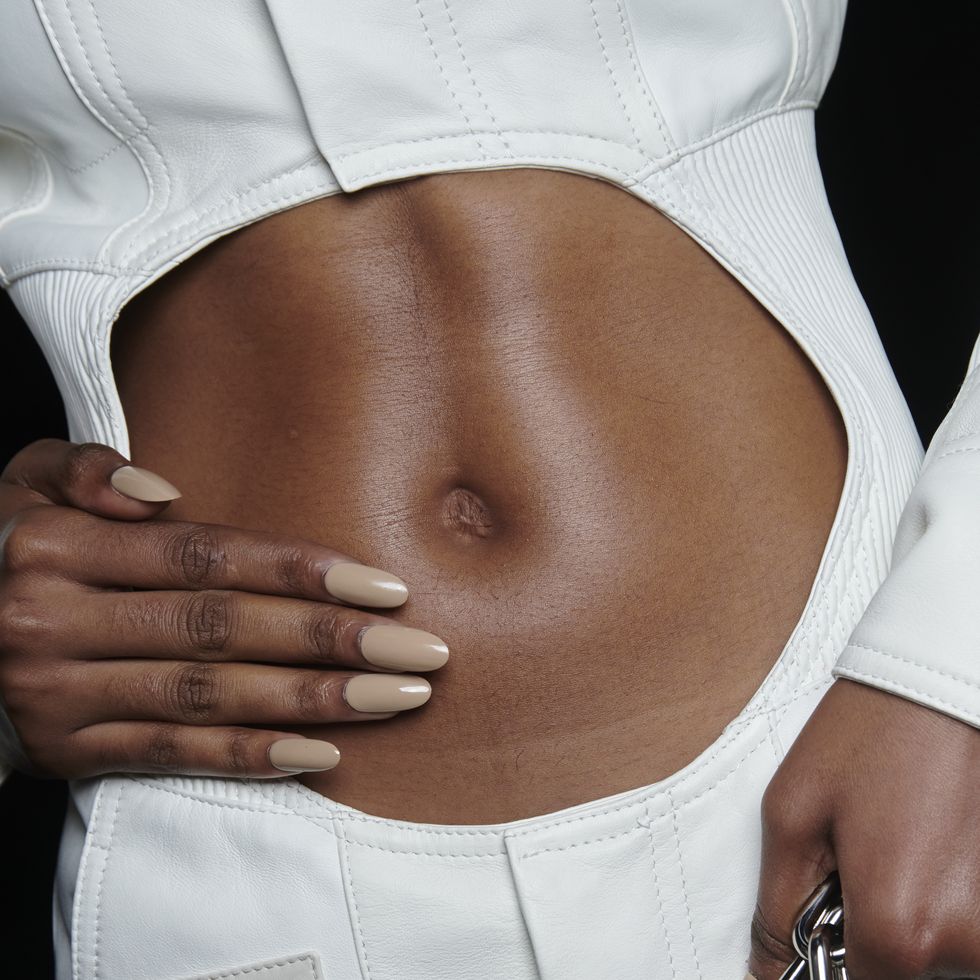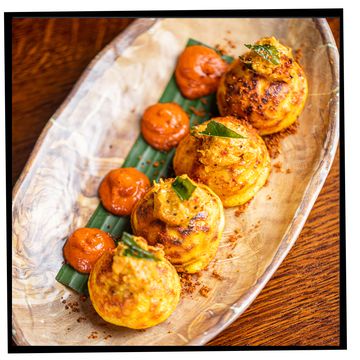You don't need to spend long scrolling through TikTok to notice the influx of gut health-related content on your feed. Whilst Instagram has long been social media's go-to wellness destination, TikTok is fast becoming a one-stop-shop for health advice - and it's concerned for your guts. With #guthealth garnering over 2.8 billion views, the aptly (if not creatively) named GutTok community shows no signs of slowing down on their mission to improve our bowel movements. Think thousands of videos covering everything from DIY ginger digestive shots, to reviews of pricey probiotic supplements and gut health recovery journeys. It’s everything you need to heal your gut to a state of optimal health, or at least that's how it appears.
As TikTok increasingly becomes a source of information and education (in September the New York Times reported that TikTok was hot on the toes of Google, with users employing it as a search engine more and more) we're turning to our feeds for medical news as much as memes. But where there's crowd-sourced information, inevitably misinformation will occur as well, and the lines between personal experiences, opinions and hard facts become increasingly blurred.
Gut health, like any other biological concept is complex, nuanced and specific to each individual, something social media platforms rarely navigate successfully. While one tonic recipe may work for your favourite TikToker, it may not work in the same way for you, and can in fact be detrimental to your body. One particularly dangerous trend Dr Elisabeth Philipps, from health and wellness brand fourfive, noticed was videos supporting the use of Inulin in this context. Dr Philipps warns that this particular advice can lead to further issues. 'If you have harmful gut bacteria at high levels on the gut then taking prebiotics will feed them, leading to more bloating, especially if you’re taking inulin (or adding it to your coffee) as this irritates the stomach lining.'
With a 2021 global survey of over 73,000 adults from 33 countries finding that more than 40 per cent of adults had a form of gastrointestinal disorder, gut health has never been more relevant and relatable. The question, however, isn’t how much we need the gut health discourse, but whether it’s safe.
Previously paid little attention in the world of wellbeing, experts now recognise that how good your gut is can determine your overall health. 'Health is such an interesting word when you think about it because we only recognise it when it’s not there anymore,' says Dr Marie Drago, founder of pre and probiotic skincare brand, Gallinée. 'Good gut health means regular bowel movement, no pain, minimal gas and proper absorption of nutrients. But it’s only the start, your body is an ecosystem, and everything is so connected.'
But, with GutTok spanning everyone and anyone, how can you trust what you're watching? If you're concerned the information you're reading isn't actually scientifically backed, keep an eye out for disclaimers that let you know the creator is not a medical professional and that what they offer is experiential only. Inevitably, plenty of users won't be this responsible and often, regardless of the disclaimer, this does nothing to deter mass engagement with the content and people acting on it as a result.
Take one GutTok video where the creator suggests that adding extra virgin olive oil to their diet worked to clear acne and stop bloating. It's had over 3.5 million views. Another account that advocates drinking aloe vera juice for treating gut issues has over 1.3 million followers. Unsurprisingly, these creative methods of dealing with gut health don't always work out. 'I’m always bloated and I got to the point where I would do just about anything. I learned from TikTok that olive oil could be used to help with bloating so I tried it because it worked so well for so many people,’ Samantha, 24 reveals. 'I had a spoonful of olive oil everyday for over a month, and it was horrible, and even more disappointing that it didn’t do much to help with my bloating.'
Thankfully, it's not all snake oil out there. What we don’t see is that many GutTok creators use gut health mapping tests to identify what is happening to their gut and then treat it with professional help. Unfortunately, these types of posts often don't stand a chance of being viewed when competing against the ultra engaging clickbait-style videos promising quick results. Plus, even though this content might be more informed, it's always good to remember, TikTok is not an official source of medical advice. Dr Philipps stresses, 'Whilst these types of social media videos can be useful, you need to bear in mind that everyone’s gut is unique so a "one size fits all" approach to gut health isn’t necessarily going to help resolve your issues.' TikTok can only provide a singular dimension of a whole story, and no matter how beneficial it may appear, it would be naive to overlook the risks when it comes to your insides.
Bowel movements and bloating aside, it's worth also noting how the growing discourse around gut health can perpetuate a toxic culture of diet and negative body image. A defining feature of much GutTok content is the harmful use of before and after images. In video after video we see a before photo demonstrating a bloated stomach and an after photo with a flatter and slimmer stomach, alluding to weight loss through 'improved gut health'. It's hard to ignore the use of gut health commentary as a disguised vehicle for more harmful narratives. 'If I am being truly honest, working on my gut health was just another attempt at a diet, a quick fix to achieving a flatter stomach,' reveals Alison, 26. 'I didn’t have a clue what state my gut was in, I just knew I wanted a flatter stomach and seeing that it worked, I was in.'
Given the importance of the gut and its link to other functions of the body, it’s right that we should be concerned with our gut health but, while GutTok may offer hope and quick results, it’s not as simple as downing an apple cider shot or eliminating certain food groups. So what to do? Pay closer attention to your gut. 'What appears clear already is the importance of maintaining a balanced biome for general health and wellbeing. Nurturing a healthy gut is one way to support the skin and body from the inside out,' explains Lorraine Perretta, Advanced Nutrition Programme Head of Nutrition. And most importantly, any gut health journey should be under the guidance of a trained healthcare professional. View the videos, but consult the pros.













